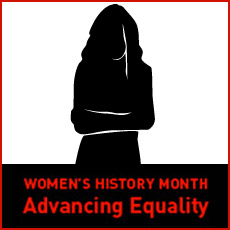
I was three months old when the U.N. General Assembly adopted the Convention on the Elimination of All Forms of Discrimination Against Women (CEDAW) on December 18, 1979. Though I was happily unaware of both the discrimination that women and girls around the world faced and the workings of the United Nations, many people had been hard at work crafting this treaty, which would for the first time in history hold countries around the world to a comprehensive and binding set of international standards articulating the equal rights of men and women. What a wonderful and exciting time to be born a girl!
Except that, in the intervening 32 years, as a steady march of countries have ratified the treaty — from China in 1980 to Armenia in 1993 to Qatar in 2009, bringing the total to 186 nations — my own government, which was instrumental in drafting the treaty, has failed to ratify CEDAW. In fact, the U.S. is now one of only seven countries that have not ratified CEDAW, together with Iran, Somalia, Sudan, Nauru, Palau, and Tonga. To be sure, I and other women in the U.S. enjoy more freedom and equality than women in many other countries, but we still face countless forms of discrimination, especially those of us who are poor, immigrants, and women of color.
When I talk about CEDAW, many people ask, “What is the point of these international treaties? Aren’t our domestic laws sufficient? Is there really any enforcement? And what about all the countries that have ratified CEDAW but still have plenty of women’s rights violations?” Certainly, like any other treaty or law, CEDAW is not a quick fix. It requires buy-in, education, and implementation. Once a country has ratified, the government is required to report every four years on its compliance with the treaty and the progress it has made on women’s rights. Advocates—such as the ACLU—are invited to participate actively in this process and have effectively leveraged the international scrutiny to motivate their governments to take action.
To give just a few examples of how advocates and governments have turned CEDAW into real change for women: Bangladesh is using the treaty to eliminate gender disparities in education by 2015, and countries including Egypt, Jordan, Nicaragua and Pakistan have all seen significant increases in literacy rates after taking similar action to improve access to education for girls and women.
India developed national guidelines on workplace sexual assault after its Supreme Court found, in its ruling on a major rape case, that such protections were necessary to be in compliance with CEDAW. Mexico passed and is implementing a comprehensive law to respond to its destabilizing epidemic of abduction, rape and murder of women; and Nepal and dozens of other countries around the world have translated CEDAW into measures to curb domestic violence and trafficking.
If we are willing to do the work, CEDAW can be a powerful tool for women’s rights advocates. CEDAW would help women in the U.S. make advancements in any number of ways: from improving prevention of and response to violence against women (every day more than three women are killed by their intimate partners in the United States, and many more are assaulted, raped, trafficked, stalked, and otherwise abused), to addressing our abominable maternal mortality rates (the U.S. spends more on health care than any other country but women in the U.S. have a greater risk of dying during pregnancy or childbirth than women in 49 other countries).
U.S. ratification would not only strengthen efforts here at home, but would also send a powerful message to the rest of the world that we take seriously the discrimination that women and girls continue to face in every corner of the earth, and that we are a committed partner in the global movement for women’s equality.
This Women’s History Month, as we celebrate all the advances that our grandmothers and mothers have made and rededicate ourselves to fighting for greater equality for our daughters, it is my hope that we can overcome the lack of political will that has stood in our way, and finally ratify CEDAW. So that my children will be born in a country that can truly call itself a leader in defending women’s human rights.
We're holding a month-long blog symposium on women's rights for Women's History Month. See all the blog posts here, and learn more about women's rights: Subscribe to our newsletter, follow us on Twitter, and like us on Facebook.


